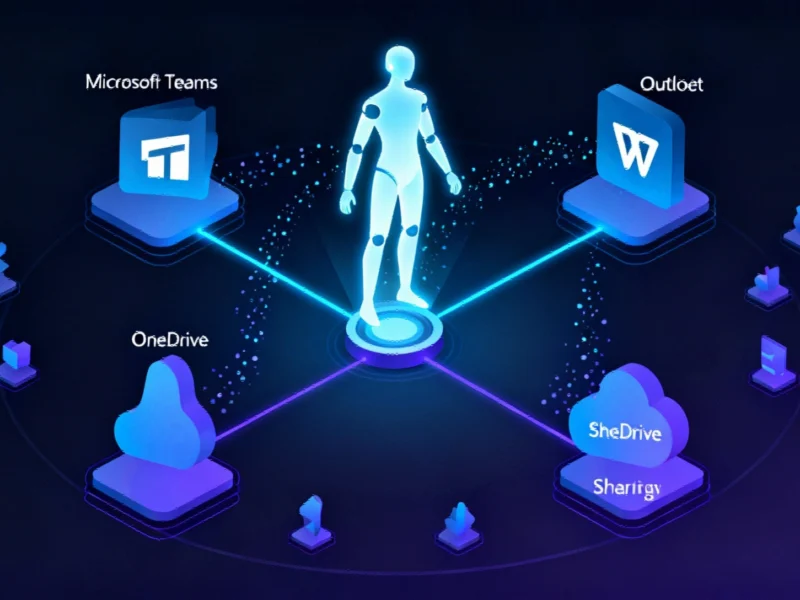According to CNBC, Amazon secured a landmark $38 billion commitment from OpenAI to use AWS cloud infrastructure, announced just days after the company reported blowout earnings that sent its stock surging 9.6%. The deal represents a significant shift as OpenAI, previously reliant on Microsoft’s Azure cloud service, will immediately begin running workloads on AWS using hundreds of thousands of Nvidia GPUs across U.S. data centers. Amazon’s stock responded with another 4.5% gain, bringing its year-to-date performance to over 16% after entering last week as the worst-performing Magnificent Seven stock of 2025. AWS growth accelerated to 20% in the latest quarter from 17.5% previously, with the company planning to double its overall cloud capacity by the end of 2027 through expanded data centers and chips including its custom Trainium silicon and Nvidia processors.
The Multi-Cloud Tipping Point
This deal fundamentally alters the cloud AI landscape by demonstrating that even the most exclusive partnerships are becoming multi-cloud arrangements. OpenAI’s decision to diversify beyond Microsoft Azure reflects a broader industry trend where companies are avoiding vendor lock-in for critical AI infrastructure. The timing is particularly significant given that Microsoft’s right of first refusal with OpenAI expired just last week, creating an immediate opening for competitors. This pattern mirrors what we’ve seen in other enterprise technology sectors – initial exclusivity gives way to diversification as companies scale and their needs become more complex.
AWS Versus Azure: The New Dynamics
While Microsoft retains its $250 billion commitment from OpenAI for Azure scaling, the AWS deal represents a symbolic and practical blow to Microsoft’s AI dominance narrative. Amazon’s ability to secure this partnership demonstrates that their massive Nvidia GPU inventory and custom silicon development have positioned them as a credible alternative for the most demanding AI workloads. The competitive implications extend beyond just these two players – Google Cloud and Oracle have also signed agreements with OpenAI, suggesting that the AI infrastructure market is fragmenting rather than consolidating around a single provider.
The Infrastructure Arms Race Accelerates
Amazon’s commitment to double AWS capacity by 2027, combined with this massive OpenAI commitment, signals an unprecedented scaling of AI infrastructure that will ripple across the entire technology ecosystem. The demand for Nvidia GPUs, power resources, and data center space will intensify, potentially creating supply constraints and driving up costs for smaller players. This infrastructure build-out represents one of the largest capital expenditure cycles in technology history, with implications for semiconductor manufacturers, energy providers, and real estate markets in data center hotspots.
What This Means for Enterprise Customers
For businesses planning their AI strategies, this development validates multi-cloud approaches and provides negotiating leverage against potential vendor lock-in. The increased competition between cloud providers should lead to more favorable pricing, better service levels, and accelerated innovation in AI-specific services. However, it also complicates the landscape, requiring enterprises to develop expertise across multiple platforms and manage more complex integration challenges. The clear winner in this scenario is the enterprise customer, who now has multiple viable options for deploying sophisticated AI applications at scale.
Long-Term Market Implications
This deal suggests that the cloud AI market is entering a new phase where no single provider will dominate exclusively. We’re likely to see more specialized partnerships emerge, with different cloud providers developing unique strengths in specific AI domains. Amazon’s success in landing OpenAI, despite Microsoft’s deep historical ties, demonstrates that technical capability and scale now trump exclusive relationships. This could lead to a more balanced competitive landscape where the “Big Three” cloud providers – AWS, Azure, and Google Cloud – all maintain significant AI market share, with Oracle and other specialists capturing niche segments.




